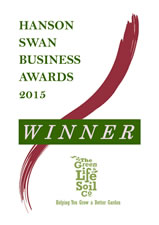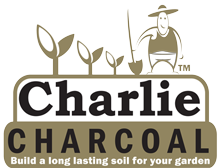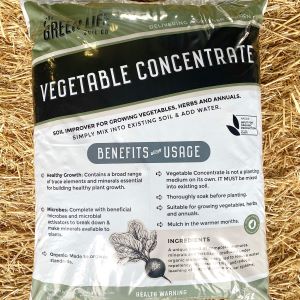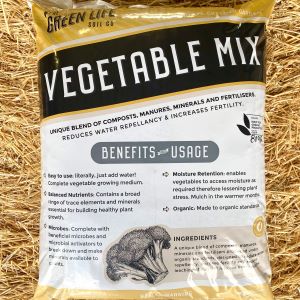| item(s), Total: $0.00 View Cart |
| Shopping cart is empty. |
Autumn Gardening Guide for Perth

The good news is that over Autumn and Winter; it is MUCH easier to get your garden thriving than it is in our harsh summer; and if you're growing vegies, you’ll benefit from successful harvests throughout Winter and Spring with a lot less work!
If you’re keen to build up your inner green thumb but don't know where to start - we've got some helpful ideas for your Autumn Perth Garden.
1. Remove old dead/dying plants. Anything diseased - put in the bin. Other plant material can be composted - why waste it? If you're not ready to do anything else to the soil, throw on a layer of mulch. Bare exposed soil will only (a) dry out if we have hot weather or (b) grow weeds if we have a little rain. Mulch will always help preserve your soil; you'll just need to rake it off when you're ready to do some digging/improvement. Not sure what mulch to use? See our fact sheet here!
2. Consider what you want to grow, and plan the best places to do it. Check out our crop rotation fact sheet and our companion planting fact sheet - they may give you some ideas to plan the position for your crops. Remember that in winter, plants need about 6 hours of sunlight - so your best producing garden areas may be quite different from those that did well in summer. Once you have a rough idea of what you want to plant, you can also consider the nutritional requirements of the plants, and think about what you need to do to top up fertility. It's best to do this before you plant. Some vegies are 'hungrier' than others. There's more info about this in the crop rotation sheet. Generally leafy greens and fruiting plants need different nutrients than legumes (peas/beans) and root crops. Want to know what vegetables to plant in Autumn? Sign up for our FREE When to Plant guide here.
3. Make sure your soil isn't water repellent. Beds that have been left empty or those that have been exposed over summer may be very hydrophobic - water will puddle on top or simply run off. You'll need to do some work to fix this - but it will be worth it! If you've already added clay or biochar (or it's been in the soil concentrates you've bought from GLSC) you may find that using a good quality soil wetter product will help (actually - it will help regardless). Clay (Cassies Clay) and biochar (Charlie Charcoal) hold many times their own weight in water - so rewetting is a process that takes time and a heck of a lot more water than you expect. The trick is to use a hose or sprinkler on LOW - don't aim to flood the soil if it's only going to run off. Use a pitchfork, spade or trowel to work the water into the surface a little at a time. It's like making mud pies - or mixing wet & dry cooking ingredients. It takes time & you may be better off doing it in several sessions. The good news is that once you've re-wet the water holding minerals in the soil they act like a sponge - and will keep water there where the roots are going to grow. This takes a bit of effort - don't give up. Do come in and speak with us if you're having issues - Perth's sandy soils are tough! Feel free to bring in soil samples (no more than about half a litre is needed) and we can play with incorporating inputs to demonstrate the difference they will make to your garden. We have Perth's best organic soils - so let us show you how we can help.
4. Add OM (organic matter). If you have typical Perth soil (sandy & lifeless) you will need to add compost and/or manure to re-introduce soil microbes and to provide nutrition to your plants. It's the perfect time to incorporate clay and/or biochar (Charlie Charcoal) too - this will keep the nutrients in the soil longer and greatly improve the soil structure. Minerals are permanent soil additives; your compost and manure will break down over the season and disappear. Our unique soil concentrate recipes are designed to be incorporated through your garden to replenish nutrients - they contain a blend of compost, manure and a tailored mix of minerals (including clay & biochar) to promote long term growth and water holding; while boosting habitat for beneficial soil microbes. We've done the hard work for you by creating a ready to use blend of goodies. Again - if you're not ready to plant out; keep the soil mulched and watered to keep the soil moist. No need to overdo it, but don't allow it to dry out or the biology will suffer.
5. Get ready to plant! If you're using fresh compost or manure you've sourced - don't plant directly into it. Often fresher products will have a high pH which can impact plant health - learn more in our fact sheet. Fresher OM will continue to break down in the coming weeks, but plant out your seeds or seedlings into a little basin of soil or potting mix to get the roots growing in the meantime. A handful of worm castings incorporated into the planting hole works really well, too. Give new seedlings a dose of kelp fertiliser - it helps with transplant shock and once again boosts soil biology. You may wish to do this every few weeks - particularly with fast growing leafy green crops, which benefit from a bit of extra feeding throughout their life.
6. Maybe mulch?! If you're planting established plants and trees, it's a good idea to mulch your new plantings. If you're growing from seed, keep mulch OFF your garden until seeds have emerged and seedlings are about 10cms tall. Mulch will prevent germination and may encourage pests like slaters who can damage young seedlings. Making sure they're a bit established will give them the best chance of success. Particularly vulnerable seedlings may benefit from some DIY collars - made from plastic bottles or containers over each seedling to help keep pests away. Iron based pellets like Multiguard or our Certified Organic Protect-us pellets will help with slugs, snails and slaters. A light sprinkling around new plantings is a good idea. Once seedlings are established, mulch is helpful. It's not as vital over winter (compared to our summer, obviously) but it does add valuable organic matter to the soil over time and assists with building healthy soil.
7. Monitor for pests and diseases. Hopefully, giving your plants the best start will ensure healthy growth. Keep an eye on them as they grow and if there's signs of any pests or disease, investigate further and decide if it's something that needs treating - sometimes, issues are seasonal. If you're wanting to reduce the use of chemicals in your garden, acting early and being aware of your options is important. Ask at your local nursery (or come and visit us) if you need help - we're Perth's Organic gardening specialists, and we'd love to make sure you're having success in your Autumn garden. Whether you're growing veggies, herbs or ornamental plants this Autumn/Winter in Perth - we can help.
Want to know what to plant NOW in Perth? Sign up for our free downloadable chart - we've got one for 'What to Plant Now' for Vegies & one for herbs.
Download our FREE 'Top 12 Edible Plants for Autumn/Winter' - become a VIP member & sign up now for access and to receive our monthly newsletter with more seasonal growing advice for Perth!
Products for Autumn Gardening in Perth
There are several products from our product range that are perfect for your Autumn garden in Perth. If you need help or advice to choose what’s best for you – please contact us today!
Get Growing Today!
Come on in!
Pick up bags or bulk product bring your trailer (or use one of ours) Opening hours: 8.30 - 4.00 Monday - Saturday (closed Sunday)
Shop Online - We Deliver
24/7 convenient & secure online shopping or support your local independent retail outlet
Get Growing
We guarantee our products. Ask our friendly staff for help & advice ~ we're here to help you achieve the garden of your dreams.




























